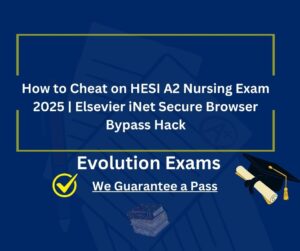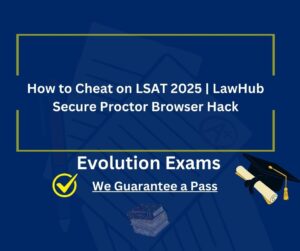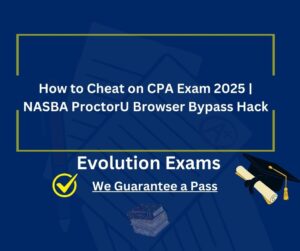How to Succeed Without the Traditional Exam System
Succeed Without the Traditional Exam System;

The traditional exam system has long been a cornerstone of academic assessment. However, it often causes unnecessary pressure and stress for students. The long hours of preparation, the anxiety of test-taking, and the fear of failure can all take a toll on a student’s mental health and overall performance.
Fortunately, there are alternative methods that allow students to bypass these exams and focus on building practical skills instead. This approach not only gives students a head start in their academic and career pursuits but also ensures they achieve the results they need while staying stress-free. Bypassing exams is not about avoiding responsibility; it’s about using available resources to secure success efficiently.
Understanding the Traditional Exam System
Traditional exams are designed to assess a student’s knowledge and understanding of a subject. They are typically administered at the end of a course or academic term and are used to determine a student’s grade. While these exams can be effective in measuring certain types of knowledge, they can also be highly stressful and time-consuming for students.
A. The Pressure of Traditional Exams
Traditional exams often come with significant pressure. Students are expected to perform well under strict time limits and in a high-stakes environment. This pressure can lead to test anxiety, which can negatively impact a student’s performance and overall well-being.
B. The Time Commitment
Preparing for traditional exams often requires long hours of studying, attending review sessions, and completing practice tests. This time commitment can be overwhelming, especially for students who have other responsibilities, such as part-time jobs or family commitments.
C. The Focus on Memorization
Traditional exams often focus on memorization rather than practical application. This can lead to a superficial understanding of the material and a lack of long-term retention. Students may find it difficult to apply their knowledge in real-world situations, which can hinder their career development.
The Benefits of Bypassing Traditional Exams
Bypassing traditional exams offers several benefits, including reduced stress, increased flexibility, and a focus on practical skills. Here are some of the key advantages:
A. Reduced Stress and Anxiety
By bypassing traditional exams, students can avoid the pressure and anxiety associated with test-taking. This can lead to better mental health and overall well-being, allowing students to focus on learning and personal growth.
B. Increased Flexibility
Bypassing traditional exams allows students to choose alternative assessment methods that better suit their learning style and schedule. This flexibility can be particularly beneficial for students with busy lives or other commitments.
C. Focus on Practical Skills
Alternative assessment methods often focus on practical application rather than memorization. This can lead to a deeper understanding of the material and better long-term retention. Students can develop skills that are more relevant to their future careers, such as critical thinking, problem-solving, and communication.
D. Faster Achievement of Goals
By bypassing traditional exams, students can achieve their academic and career goals more quickly. This can be particularly beneficial for students who are eager to move on to further education or career opportunities.
Alternative Methods to Bypass Traditional Exams
There are several alternative methods that students can use to bypass traditional exams while still meeting their academic requirements. Here are some of the most effective strategies:
A. Project-Based Assessments
Project-based assessments allow students to demonstrate their knowledge and skills through practical application. This method can be particularly effective for subjects that require hands-on learning, such as science, engineering, or business. By completing a project, students can showcase their ability to apply theoretical knowledge to real-world problems.
B. Portfolio Evaluations
Portfolio evaluations involve compiling a collection of a student’s best work throughout the course. This method provides a more comprehensive and authentic representation of a student’s abilities and knowledge. Portfolios can include written work, presentations, projects, and other forms of assessment that demonstrate a student’s skills and understanding.
C. Online Learning Platforms
Online learning platforms offer a variety of resources and tools that can help students prepare for exams without traditional studying. These platforms often provide interactive lessons, practice quizzes, and other resources that can make learning more engaging and effective. Additionally, online platforms can be accessed at any time, providing students with the flexibility to study at their own pace.
D. Professional Assistance
Seeking professional assistance can be a highly effective way to bypass traditional exams. Experts in academic coaching and test preparation can provide personalized guidance and strategies to help students succeed. These professionals can help students understand the material, develop effective study habits, and prepare for alternative assessment methods.
Tips for Successful Alternative Preparation
If you decide to use alternative methods to bypass traditional exams, there are several tips to help ensure your success:
A. Understand Your Options
Before you make any decisions, it’s important to understand all your options. Speak with your academic advisor or institution to learn about the alternative assessment methods available and the specific requirements for each.
B. Develop a Study Plan
Even if you’re using alternative methods, it’s still important to develop a study plan. Set clear goals and deadlines for yourself, and create a schedule that allows you to focus on one thing at a time. This will help you stay organized and avoid last-minute cramming.
C. Stay Engaged and Motivated
Staying engaged and motivated is key to success. Find ways to make learning enjoyable and relevant to your interests. Engage with the material in a way that works best for you, whether it’s through hands-on projects, interactive lessons, or other methods.
D. Seek Support
If you’re struggling with any aspect of your preparation, don’t hesitate to seek support. Speak with your teachers, academic advisors, or peers. Many institutions offer resources such as tutoring, study groups, or counseling services that can help you stay on track.
Conclusion
Bypassing traditional exams can be a smart and efficient way to achieve your academic goals. By understanding your options, developing a study plan, and using alternative assessment methods, you can save time, reduce stress, and focus on skill development. Remember, the key to success is finding the method that works best for you and staying committed to your goals.



